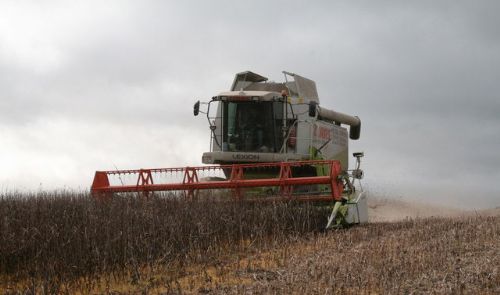
European Commission plans to oblige farmers to grow at least three different crops and meet various environmental standards, has been largely rejected by the Environment, Food and Rural Affairs Committee (Efra).
The ’Greening the Common Agricultural Policy’ (CAP) report suggested the European Commission should reform its plans.
Both the NFU President Peter Kendall and the CLA President Harry Cotterell spoke about the report following its publication and warned that increased modulation to British farmers will put them at a disadvantage in relation to their European counterparts.
"We agree with the Efra committee that the competitiveness of UK farmers will be significantly impacted by the Commission’s greening plans if they were to go ahead as are currently proposed" said Cotterell.
"Defra should not set modulation rates higher than other member states that receive similar single farm payment rates".
Peter Kendall added "The UK is the only member state to use voluntary modulation and it is incredibly frustrating when we hear that Defra negotiators are arguing for ways to increase the amount of money that can be transferred from the direct payments envelope purely on a national basis".
The Commission also wants subsidies to be conditional on whether farms have met various environmental criteria, a section of the report that was broadly welcomed by Efra and WWF UK but said that modulating farmers was not the right approach.
"The modest proposals put forward by the European Commission to ’green’ the CAP would have been a small step towards protecting the British countryside, protecting the vitality of our rural communities and ensuring that good food is available at an affordable price" said Duncan Williamson, programme manager at WWF.
"The Committee’s implication that food security and environmental protection are mutually exclusive is simply wrong; to have a resilient, sustainable food system we have to make sure the two complement each other. Under an à la carte approach to greening the CAP, member states could simply pick and choose the easiest options with the lowest benefits for environment."
The Tenant Farmers’ Association disagreed with the Commission proposals for farmers to leave 7% of their land fallow, in an ’Ecological Focus Area’.
"Given the nature of tenanted holdings, tenant farmers often do not have access to anything other than productive agricultural land upon which they pay rent over every acre. Areas like woodlands, copses, rivers, ponds etc tend to be reserved by landlords when drawing up tenancy agreements," said TFA Chief Executive George Dunn.
"It was also good to see that the MPs have understood the need to ensure that whatever support payments are eventually agreed that they should be targeted at those who are actively farming land as opposed to land owners or others who are not in occupation, not in day-to-day management control and taking none of the entrepreneurial risk. Whilst the current definition of "active farmer" within the draft EU Regulations is unworkable, the concept should be retained and amended as the TFA has proposed."
